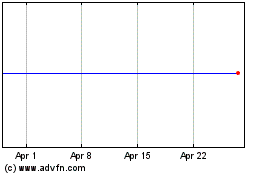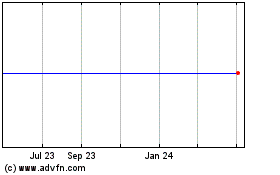Notice of Exempt Solicitation. Definitive Material. (px14a6g)
January 11 2022 - 3:14PM
Edgar (US Regulatory)
U.S. Securities and Exchange Commission
Washington, D.C. 20549
NOTICE OF EXEMPT SOLICITATION
Pursuant to Rule 14a-103
Name of the Registrant: Zendesk, Inc.
Name of persons relying on exemption: Janus Henderson Investors US LLC
Address of persons relying on exemption: 151 Detroit Street, Denver, CO 80206
Written materials are submitted pursuant to Rule 14a-6(g)(1) promulgated under the Securities Exchange Act of 1934. Submission is
not required of this filer under the terms of the Rule but is made voluntarily in the interest of public disclosure and consideration of these important issues.
To the Zendesk Board of Directors:
We engaged in an open dialogue with Zendesk management and the Board of Directors over the past two months since the announcement of the proposed acquisition of Momentiv, on October 28, 2021. We are especially grateful for the BoD engagement
and willingness to discuss our concerns. Our multiple conversations suggest there is an understanding of shareholder concern and respect given to shareholders. However we are writing this letter to share our concerns in hopes of continued
dialogue and understanding of our position.
We are writing this letter from the perspective of a large, multi-year ZEN shareholder. We have extensive direct research and/or ownership of customer experience companies, service-oriented companies, contact center companies and customer data
platform companies, among others. We believe we speak from a perspective of deep understanding of customer service, customer experience and interaction. From that perspective, we question the strategic, tactical, and financial rationale to the
proposed deal:
|
•
|
We do not think there is a strategic advantage for ZEN to own MNTV:
|
|
o
|
ZEN’s DNA is to have open and elegant APIs, to enable customers to choose which products they integrate with their ZEN offerings.
|
|
o
|
This enabled ZEN to have a strong core service offering while allowing customers the flexibility to add on incremental complementary products if they choose (and in fact ZEN has strong integrations with other survey companies). We
think this is a strategic differentiator and competitive advantage. It appears the MNTV acquisition is directly contrary to this long-standing and proven strategy.
|
|
o
|
We do not believe there is a strategic advantage for ZEN to have surveys embedded within the ZEN platform. To this point, if a customer wanted surveys from any vendor, integrated with their broader ZEN service offering, they can and
have potentially already done so.
|
|
•
|
While we understand the desire to develop a better understanding of end customers, we do not believe surveys are an appropriate technology/product to embed within the ZEN product portfolio:
|
|
o
|
Surveys appear to be better suited to longitudinal data, potentially better for marketing campaigns for instance.
|
|
o
|
What end customers say they do in surveys is often different than what they actually do.
|
|
o
|
Surveys are dependent upon end user response, which is frequently poor.
|
|
o
|
To be effective, surveys often require a significant amount of consultative engagement, especially at the enterprise level.
|
|
o
|
There are other technologies potentially better suited to deliver end customer insights into the “why” they do what they do.
|
|
o
|
In the event customers desire both ZEN and a survey product, we believe ZEN should continue with their proven strategy of open and elegant API’s allowing customers to choose between survey vendors.
|
|
•
|
We believe there is significant tactical execution risk to this deal. We believe the core ZEN platform and product offering is sufficient to drive significant growth for years to come. Consistent execution to the previous plan (prior
to the proposed MNTV acquisition) is in our opinion the key to unlocking significant shareholder value. More recently, ZEN is not executing according to investor expectations, leading to material share underperformance in the months
prior to the announced MNTN deal. Accordingly, we think management should focus on consistent execution of the core ZEN platform. We believe acquiring another company that has not delivered to investor expectations, taking on the task
of improving their execution, while simultaneously undertaking challenging integration risk, is unlikely to create value.
|
From a financial perspective:
|
•
|
In addition to our concerns over the strategic rationale of this proposed deal, we are concerned with the financial aspects of this proposed deal:
|
|
o
|
An all-stock deal immediately after the stock declined 20.83% following the June quarterly earnings where ZEN missed revenue estimates (stock price from 7/29/21 closing price to 10/28/21 closing price; NASDAQ composite +4.58% during
that time period). All-stock deals usually make the most sense when the acquirer’s stock is near highs, not after material weakness.
|
|
◾
|
We question the decision to acquire a company appearing to possess lower structural near and long term revenue growth and operating margins. Further, we are concerned the acquisition of MNTV results in slower growth and lower margins
relative to the standalone ZEN business, as revenue synergies in particular appear based largely upon management’s assumption they can simply run the MNTV business better than MNTV management. Management’s forecasts shared in the proxy
appear to support this view:
|
|
•
|
ZEN’s expected revenue growth differential vs MNTV’s expected revenue growth FY22-FY25:
|
|
•
|
ZEN revenue growth per proxy: 27.2% FY22, 26.5% FY23, 26.0% FY24, 25.0% FY25
|
|
•
|
MNTV revenue growth per proxy: 19.5% FY22, 19.5% FY23, 20.3% FY24, 19.7% FY25
|
|
•
|
Per the proxy, expected revenue synergy: $5 million FY22, $55 million FY23, $151 million FY24, $274 million FY25. FY25 projections would represent a 30% uplift from stand-alone MNTV, which is quite a high hurdle even assuming
realized synergies.
|
|
•
|
It appears the expected synergy is simply from operating MNTV better than current MNTV management, and we question the ability to generate incremental revenue from ZEN owning MNTV.
|
|
•
|
ZEN’s operating margin differential vs MNTV’s expected OM FY22-FY25:
|
|
•
|
ZEN OM per proxy: 7.5% FY22, 8.5% FY23, 10.5% FY24, 12.5% FY25
|
|
•
|
MNTV OM per proxy: 3.2% FY22, 4.6% FY23, 7.0% FY24, 9.1% FY25
|
|
•
|
Expected operating margin benefits from the combined entity appear based upon the aforementioned revenue synergies, which we question, as well as cost cutting.
|
|
o
|
We believe ZEN’s stock was already materially under-valued primarily due to ZEN management’s mis-execution. The decision to acquire a company that has its own mis-execution history, with a belief ZEN management will materially execute
better, does not strike us as likely.
|
We are gravely concerned about the strategic, tactical, and financial rationale of this proposed deal. We think the company should instead renew its focus on executing on the ZEN standalone business. We are writing this letter to ensure both
management and the Board of Directors fully understand our stance. While we appreciate the dialogue with both management and the Board of Directors, we hope to continue this dialogue in an effort to ensure the best possible outcome for Zendesk
shareholders. We are pleased the Board and management do not intend to circumvent the shareholder approval process as it relates to this proposed deal and hope we can continue to move forward for the best interests of Zendesk shareholders.
Sincerely,
Jonathan Coleman, Portfolio Manager
Scott Stutzman, Portfolio Manager
Aaron Scully, Portfolio Manager
Nick Schommer, Portfolio Manager
George Maris, Co-Head of Equities – Americas, Portfolio Manager
Julian McManus, Portfolio Manager
Paul Berg, Research Analyst
Zendesk (NYSE:ZEN)
Historical Stock Chart
From Mar 2024 to Apr 2024

Zendesk (NYSE:ZEN)
Historical Stock Chart
From Apr 2023 to Apr 2024
